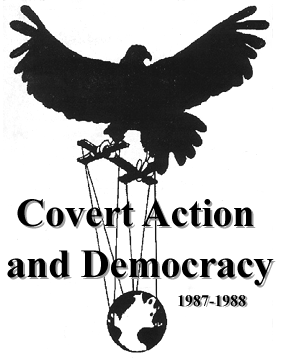- About this Program
- 2012 Conflict in the 21st Century
- 2011 Our Nuclear Age: Peril and Promise
- 2010 South Asia: Conflict, Culture Complexity, and Change
- 2009 Cities: Forging an Urban Future
- 2008 Global Poverty and Inequality
- 2007 Global Crises: Governance and Intervention
- 2006 The Politics of Fear
- 2005 Oil and Water
- 2004 Dilemmas of Empire and Nation Building
- 2003 Sovereignty and Intervention
- 2002 Global Inequities
- 2001 Race and Ethniciity: A Global Inquiry
- 2000 Global Games: Sports, Politics, and Society
- Symposium
- 1999 Global Crime, Corruption, and Accountability
- 1998 Exodus and Exile: Refugees, Migration, and Global Security
- 1997 The Future of Democracy
- 1996 Religion, Politics, and Society
- 1995 20/20 Visions of the Future
- 1994 Ethnicity, Religion and Nationalism
- 1993 Transformations in the Global Economy
- 1992 - International Security: The Environmental Dimension
- 1991 Confronting Political and Social Evil
- 1990 The Militarization of the Third World
- 1989 Drugs, International Security and U.S. Public Policy
- 1988 Foreign Policy Imperatives for the Next Presidency
- 1988 Covert Action and Democracy
- International Symposium
- 1987 The West Bank and Gaza Strip
- 1986 International Terrorism
- News
- Press Clips
- Calendar
- Resources
EPIIC Archives
1988 Covert Action and Democracy

|
|
Has the Iran/Contra affair revealed a reckless interventionist U.S. foreign policy; an increasing politicization of our intelligence; and exaggerated reliance on secrecy and privatization in our international relations? Were these events abberations? Have covert operations supplanted diplomacy? Are Congressional and Executive oversight of intelligence and covert action increasingly ineffectual?
Over a decade ago, the Church Committee, concluding its Congressional investigation of abuses of power by U.S. intelligence agencies, recommended procedures that it hoped would at least make covert operations consistent with our democractic process. Yet the findings of the Tower Commission and the Iran/Contra hearings indicated that every one of these recommendations was violated. It is for this reason that our common conclusion is that the United States is at a critical political and Constitutional crossroads.
We have evaluated the efficacy and ethics of covert action in U.S. foreign policy, while also considering the implications of such secret operations for a democractic nation. We have studiously sought to remain as neutral and objective as possible, while inevitably being passionately involved in the inherent political and ethical issues.

